Filter by
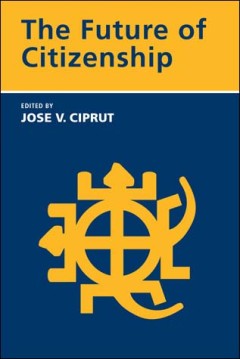
The Future of Citizenship
Contributors from a range of disciplines discuss the evolving meaning of citizenship, and the possible future of a global "citizenship by voluntary association."The ongoing expansion in the field of citizenship studies is one of the most important and remarkable recent trends in social sciences and humanities research. Some scholars raise questions about citizenship within a larger critique of …
- Edition
- -
- ISBN/ISSN
- 9780262270380
- Collation
- 1 online resource (xiii, 385 pages)
- Series Title
- -
- Call Number
- -
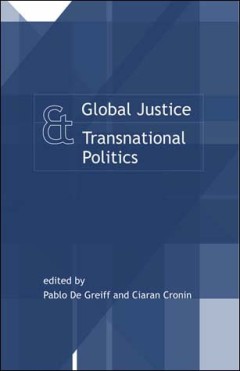
Global justice and transnational politics : essays on the moral and political…
If globalization is to be a benefit and not a burden to humankind, it must be governed by global institutions that are perceived by all people to be democratic and just. But before we can create such institutions, we must imagine them, and that requires a rethinking and extension of normative political theory. Global Justice and Transnational Politics encourages and advances that work.The book'…
- Edition
- -
- ISBN/ISSN
- 9780262271325
- Collation
- 1 online resource (vi, 320 pages).
- Series Title
- Studies in Contemporary German Social Thought
- Call Number
- 320 GLO
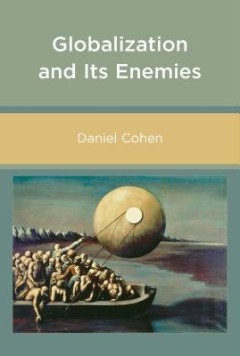
Globalization and its enemies
A provocative argument that the frustrations of globalization stem from the gap between the expectations created and the lagging economic reality in poor countries.The enemies of globalization--whether they denounce the exploitation of poor countries by rich ones or the imposition of Western values on traditional cultures--see the new world economy as forcing a system on people who do not want …
- Edition
- First MIT Press paperback edition.
- ISBN/ISSN
- 9780262266628
- Collation
- 1 online resource
- Series Title
- -
- Call Number
- 330 COH g
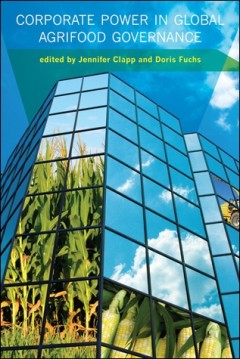
Corporate Power in Global Agrifood Governance
Here, experts examine the ways transnational corporations exercise power over governance of the global food system and the implications this has for sustainability.OCLC-licensed vendor bibliographic record.
- Edition
- -
- ISBN/ISSN
- 9780262255509
- Collation
- 1 online resource (xix, 308 pages) :illustrations.
- Series Title
- -
- Call Number
- -
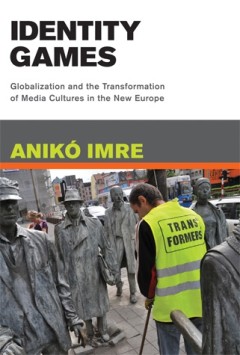
Identity Games: Globalization and the Transformation of Media Cultures in the…
This work is an examination of the unique, hybrid media practices generated by Eastern Europe's accelerated transition from late communism to late capitalism.OCLC-licensed vendor bibliographic record.
- Edition
- -
- ISBN/ISSN
- 9780262255127
- Collation
- 1 online resource (x, 257 pages) :illustrations
- Series Title
- -
- Call Number
- -
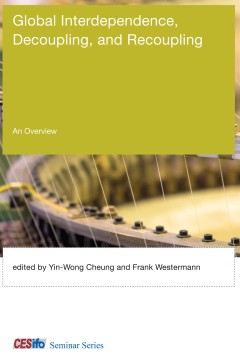
Global Interdependence, Decoupling, and Recoupling
"One lens through which to view global economic interdependence and the spillover of shocks is that of decoupling (and then recoupling). Decoupling between developed and developing countries can be seen in the strong economic performance of China and India relative to that of the United States and Europe in the early 2000s. Recoupling then took place as developing countries sank along with the …
- Edition
- -
- ISBN/ISSN
- 9781461952343
- Collation
- 1 online resource.
- Series Title
- -
- Call Number
- -

Dynamics among Nations: The Evolution of Legitimacy and Development in Modern…
"Liberal internationalism has been the West's foreign policy agenda since the Cold War, and the West has long occupied the top rung of a hierarchical system. In this book, Hilton Root argues that international relations, like other complex ecosystems, exists in a constantly shifting landscape, in which hierarchical structures are giving way to systems of networked interdependence, changing ever…
- Edition
- -
- ISBN/ISSN
- 9781461950349
- Collation
- 1 online resource (xiii, 332 pages)
- Series Title
- -
- Call Number
- -
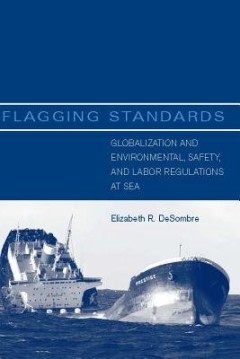
Flagging Standards: Globalization and Environmental, Safety, and Labor Regula…
Examines the relationship between globalization and environmental, safety, and labor standards in the context of the shipping industry and explores the extent to which international competition affects regulatory standards.OCLC-licensed vendor bibliographic record.
- Edition
- -
- ISBN/ISSN
- 9780262271615
- Collation
- 1 online resource (xi, 308 pages) :illustrations
- Series Title
- -
- Call Number
- -
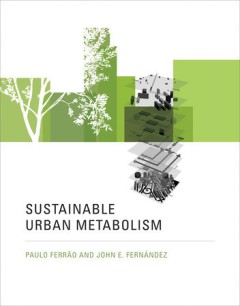
Sustainable Urban Metabolism
A unified framework for analyzing urban sustainability in terms of cities' inflows and outflows of matter and energy. Urbanization and globalization have shaped the last hundred years. These two dominant trends are mutually reinforcing: globalization links countries through the networked communications of urban hubs. The urban population now generates more than eighty percent of global GDP. Cit…
- Edition
- -
- ISBN/ISSN
- 9780262316958
- Collation
- 1 online resource (xiii, 244 pages) :illustrations
- Series Title
- -
- Call Number
- -
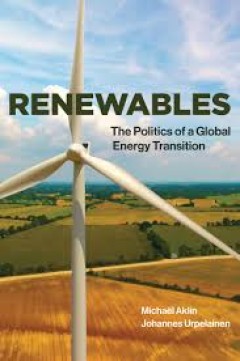
Renewables :the politics of a global energy transition
A comprehensive political analysis of the rapid growth in renewable wind and solar power, mapping an energy transition through theory, case studies, and policy.OCLC-licensed vendor bibliographic record.
- Edition
- -
- ISBN/ISSN
- 9780262344609
- Collation
- 1 online resource
- Series Title
- -
- Call Number
- -
 Computer Science, Information & General Works
Computer Science, Information & General Works  Philosophy & Psychology
Philosophy & Psychology  Religion
Religion  Social Sciences
Social Sciences  Language
Language  Pure Science
Pure Science  Applied Sciences
Applied Sciences  Art & Recreation
Art & Recreation  Literature
Literature  History & Geography
History & Geography